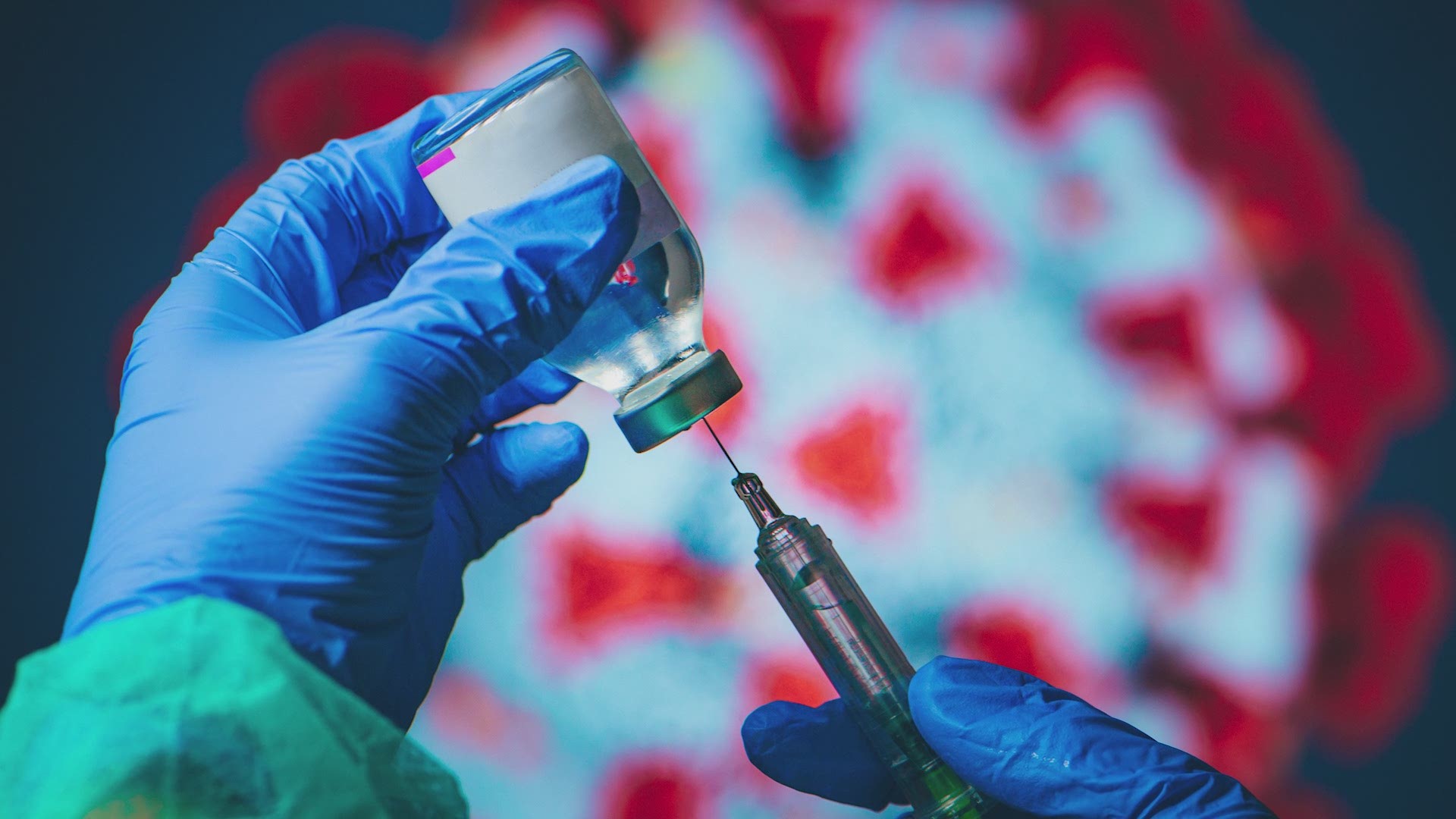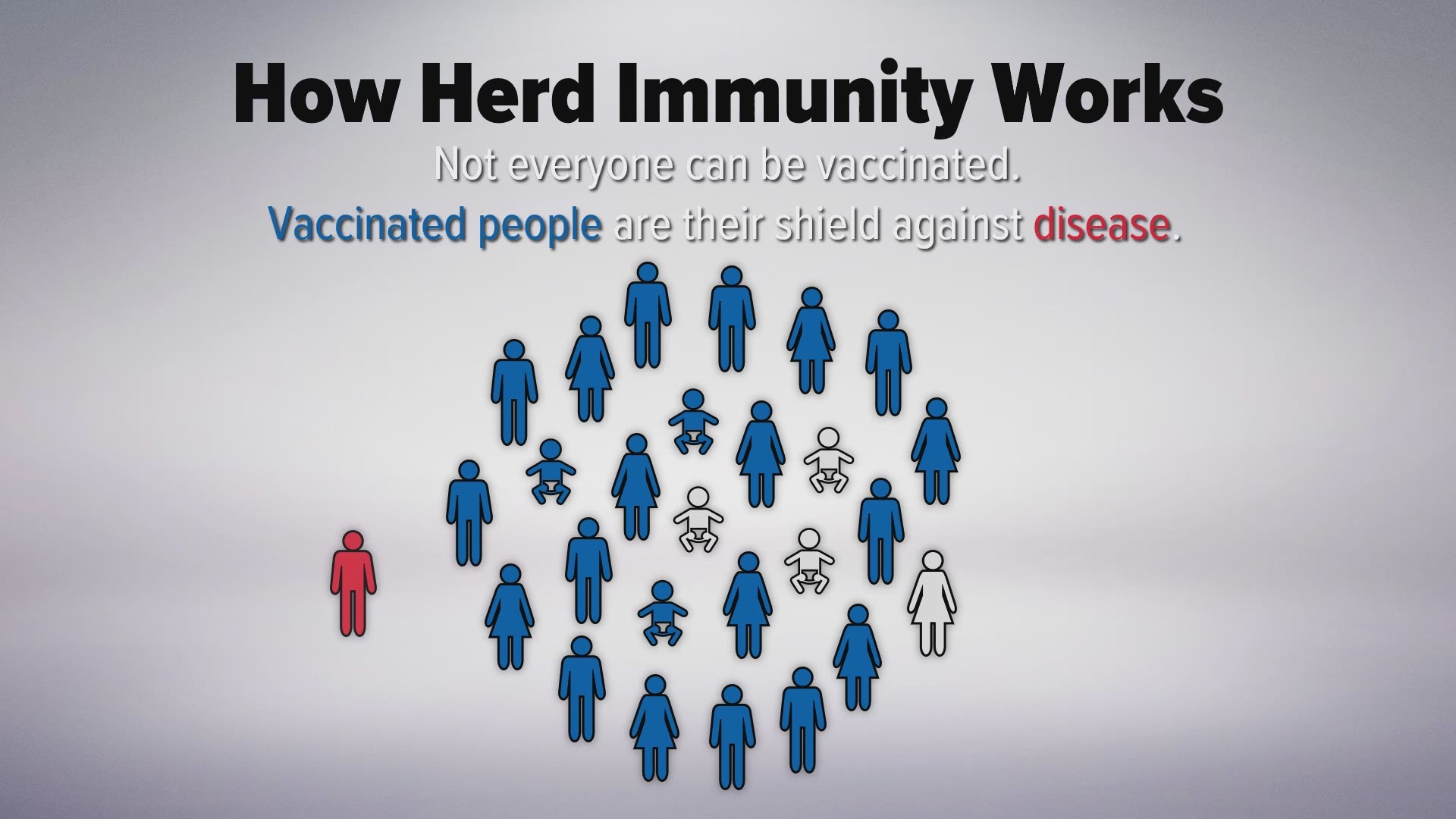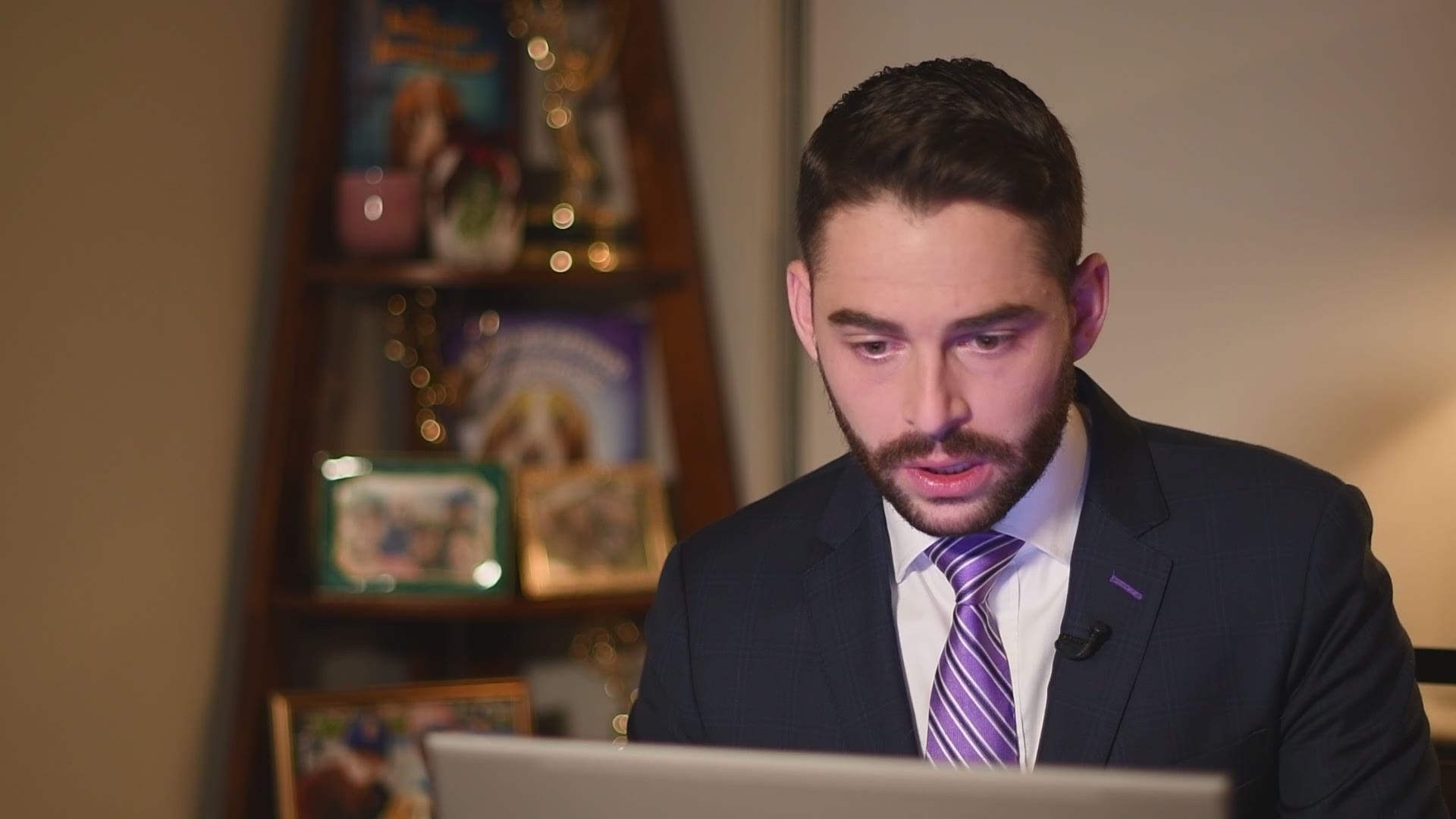WASHINGTON — Infectious disease experts see an alarming uphill battle ahead. COVID vaccines with stunningly positive preliminary data are nearing Emergency Use Authorization. But millions of Americans still say they won’t agree to get one.
A November Gallup poll showed 42% of Americans would not agree to get a COVID vaccine. That number is shrinking, but experts say it’s still cause for concern.
“Polls are not always accurate, but they’re telling us there is a serious situation here that we need to address,” Dr. Anthony Fauci told the Verify team. “There is skepticism and reluctance on the part of some people. Sometimes because of lack of really appreciating what’s going on.”
THE QUESTION:
If 42% of Americans do not get vaccinated, will we reach herd immunity?
SOURCES:
- Dr. Anthony Fauci, Director of NIAID
- Dr. William Schaffner, professor of infectious disease and member of CDC Advisory Committee on Immunization Practices.
- Dr. Stephen Kissler, a postdoctoral researcher at Harvard T.H. Chan School of Public Health
- Dr. Ali Mokdad, Professor of Health Metrics Sciences at the Institue for Health Metrics and Evaluation (IHME).
ANSWER:
If 42% of Americans do not get vaccinated, we will not reach herd immunity.
OUR PROCESS:
Despite remarkably positive preliminary results from COVID vaccine trials in the United States, millions of Americans remain skeptical of how safe they are.
Infectious disease experts stress that these COVID vaccines are safe.The trials are run by vaccine experts and overseen by independent Data and Safety Monitoring Boards.
The vaccines and trial data are submitted for approval to the FDA and their independent advisory committee, known as VRBPAC. And the CDC and their independent advisory committee on immunization practices also weigh in with recommendations of who should get the vaccine first.
“So it is a system that is very well established, independent and transparent,” Dr. Fauci said. “We need to make sure the general public understands that. This is something that is geared toward safety, geared to equity, and geared to efficacy.”
But if 42% of Americans don’t get vaccinated, our experts all said the United States would not reach herd immunity.
“There are two aspects of vaccination. One is for the individual health and safety. And the other is the impact on the dynamics of the outbreak,” Dr. Fauci said. “The more people that get vaccinated, the greater degree of protection of the entire community. That’s referred to often as 'herd immunity.' You need a certain percentage of the population to be protected, either from having already been infected or getting vaccinated. We don’t know the exact percentage, but given the efficiency of spread of this virus, we imagine it is somewhere around 75 to 85 percent or more."
The number is not exact, but all four experts estimated that between 70 and 90 percent of Americans need to be vaccinated to reach herd immunity.
Dr. Stephen Kissler broke down the formula that epidemiologists use to reach that estimate.
He said it’s based on the infectiousness of the virus. For COVID, he said, experts estimate the reproduction number is between 2.5 and 3.
“Let’s assume that there's a reproduction number of three, which means that one person who is infected is likely to infect three others,” Dr. Kissler explained. “Now, if we want to protect the population through vaccination, we need to reduce the number of people that one person is likely to infect to less than one. As long as that happens, then the number of cases can decline instead of increase.”
Dr. Kissler said that means we need to protect two out of three people through vaccination.
“And so that's where we get the two thirds or roughly 66% of the population who needs to be vaccinated in order to achieve this kind of immunity,” Dr. Kissler said. “And for good measures, since the vaccine isn't 100 percent effective, we need to increase that a little bit.”
Based on that formula, if 58% of Americans get vaccinated, it won’t be enough to reach herd immunity.
So, what happens if we don’t reach herd immunity?
RELATED: Fauci: 'Considerable risk of another surge' before holidays, advises against unnecessary travel
Dr. William Schaffner said the virus will certainly linger longer.
"It may be different in different parts of the country. Some parts of the country with more acceptance [of a vaccine], and some less,” Dr. Schaffner said. “And wherever there's less acceptance, there will still be COVID, making people sick, bringing them to the hospital and causing death.”
Dr. Schaffner and Dr. Kissler both stress that failing to reach herd immunity would put vaccinated people at risk too. Early data shows at least 5% of vaccine recipients in both Pfizer and Moderna’s trials were not protected from the virus. Also, experts don’t know if those who are protected will lose immunity over time.


“It will circulate among the unvaccinated, and as the immunity and protection begins to wane among those who are vaccinated, some of them will become re-infected with the virus, because the virus will still be circulating in the community,” Dr. Schaffner said. “And remember, there are a lot of people in our communities who are immunocompromised… They won't respond as well to the vaccine. If we're going to protect them, all the rest of us have to be vaccinated. We want to create a cocoon of protection around our most frail brothers and sisters.”
If enough people get vaccinated, experts say health agencies will be able to do more contact tracing and low-level surveillance to prevent large scale outbreaks.
Without that level of immunity, experts believe the virus will continue to spread around, certainly leading to more months of masks and distancing.
But Dr. Ali Mokdad warns there could be a much more dire consequence of failing to reach herd immunity quickly.
“It’s a race against the clock,” Dr. Mokdad told Verify. “If you allow a virus to circulate for a longer time there is more of a chance for this virus to mutate. And we don't want this to happen with this virus. Because we have a vaccine that works against the current virus that's circulating right now.”
Dr. Mokdad said if a virus mutates, any developed vaccine may or may not work moving forward. At this point, he said, experts don’t know if COVID-19 will mutate or not.
“We can't afford to let this virus mutate,” he said. “We have to quite honestly knock it down immediately.”
BOTTOM LINE:
If 42% of Americans do not get vaccinated, we will not reach herd immunity.
Experts believe that more Americans will agree to get the vaccine now that the election is over and more information is coming out.
“People see what their neighbors are doing,” Dr. Schaffner said. “And if their neighbors are getting vaccinated, and ‘Susie and Tom seem to be doing okay… alright, our family will go and get it also.’ So I think that there will be more and more of that.”
But it’s unclear what a delay could cost in American lives.
“You could prevent not only infection [with a vaccine]. You could prevent hospitalizations and ultimately prevent deaths,” Dr. Fauci said. “So it would really be, I think, bordering on tragic if you had a tool that could save lives and you don’t utilize that tool because people are reluctant to get vaccinated.”



